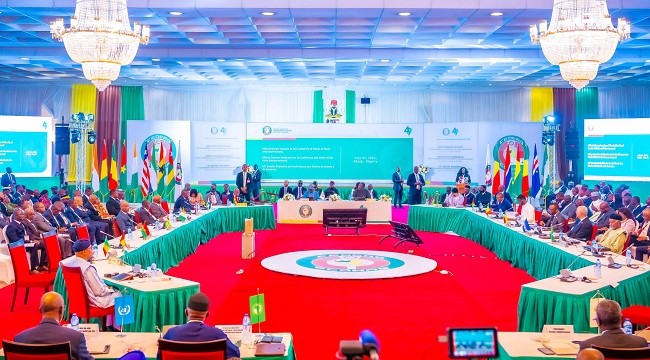West African leaders under the ECOWAS umbrella are set to gather on Sunday for a summit, with security challenges and the withdrawal of three military-led states from the bloc dominating discussions.
Ahead of the meeting, Burkina Faso, Mali, and Niger reaffirmed their stance to exit ECOWAS, labeling the bloc as overly influenced by France, their former colonial ruler. The move, described as “irreversible,” could significantly impact trade, movement, and security cooperation in a region struggling against escalating jihadist insurgencies.
The summit, hosted in Abuja, Nigeria, will see Senegal’s President Bassirou Diomaye Faye in attendance. Faye, appointed in July to mediate with the breakaway states, recently noted progress in negotiations and emphasized the importance of maintaining ties, particularly given the region’s fragile security landscape.
According to ECOWAS regulations, the withdrawal of these nations will take full effect by January 2025. Meanwhile, the three countries have forged their own alliance, the Alliance of Sahel States (AES), distancing themselves from France and aligning more closely with Russia.
Though not expected to attend the summit, the breakaway states held a ministerial meeting in Niger’s capital, Niamey, on Friday. In a joint statement, their representatives reiterated their commitment to leaving ECOWAS and exploring strategies to ensure the move benefits their citizens.
These nations have all experienced military coups and years of instability fueled by jihadist insurgencies. Guinea, another ECOWAS member, is similarly governed by a military-led administration following a 2021 coup.
Rising Tensions and Mediation Efforts
Relations between ECOWAS and the Sahel states soured after the bloc threatened military intervention over Niger’s 2023 coup—the region’s sixth in three years—and imposed sanctions on the country. Togo’s President Faure Gnassingbe has also been involved in mediating with the breakaway states.
In an attempt to revive dialogue, ECOWAS lifted some sanctions on Niger in March. Talks focused on resolving the situation surrounding deposed President Mohamed Bazoum, who has remained in detention since the coup.
Earlier this year, Nigeria’s top military officer met with Niger’s army chief to enhance security collaboration, particularly along their shared border, through joint efforts in a multinational task force.
Guinea’s Delayed Transition
Guinea, led by military leader General Mamady Doumbouya since its 2021 coup, had initially agreed under ECOWAS pressure to hold elections by the end of 2024. However, the leadership has since acknowledged that it will not meet this deadline.
As the region grapples with political instability and security threats, the outcomes of the ECOWAS summit could shape the future of cooperation and stability across West Africa.


